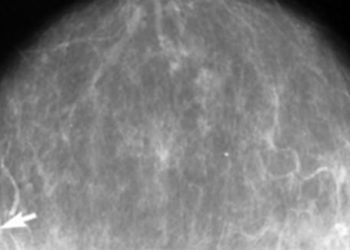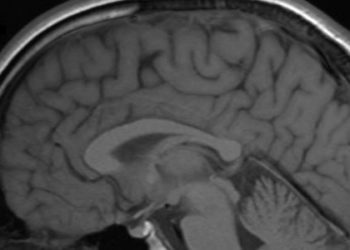Cabozantinib significantly improves progression free survival in patients with advanced neuroendocrine tumors
1. In this randomized controlled trial, cabozantinib significantly improved progression-free survival in patients with progressive pancreatic and extra-pancreatic neuroendocrine tumors.
2. Adverse events in this trial were similar to those of the known safety profile of cabozantinib.
Evidence Rating Level: 1 (Excellent)
Study Rundown: Neuroendocrine tumors, that commonly arise from the gastrointestinal tract, lungs, and pancreas, are a group of neoplasms whose treatment is often guided by features of the tumor. Angiogenesis plays a large role in the pathogenesis of neuroendocrine tumors. Agents that target vascular endothelial growth factor (VEGF) and its receptors have shown effectiveness in treating neuroendocrine tumors. Cabozantinib, an oral small molecular inhibitor of multiple tyrosine kinases, including VEGF receptors, has shown clinical activity in previous trials. This phase three, double-blind, randomized controlled trial evaluated the efficacy of cabozantinib in patients with previously treated, progressive extra-pancreatic or pancreatic neuroendocrine tumors. Patients who met inclusion criteria were randomly assigned in a 2:1 ratio to receive either 60 mg of cabozantinib daily or pa lacebo. The primary endpoint was progression-free survival. Secondary endpoints of this study included objective response, overall survival, and safety. Results from this study found that, in comparison to placebo, cabozantinib significantly improved progression-free survival in patients with previously treated extra-pancreatic and pancreatic endocrine tumors. Results also showed that the adverse events were similar to those previously reported on cabozantinib. Limitations of this trial included the early termination of the trial.
Click here to read the study in NEJM
In-Depth [randomized controlled trial]: This phase three, double blinded, randomized controlled trial assessed the efficacy of cabozantinib in patients with previously treated, progressive extra-pancreatic or pancreatic neuroendocrine tumors. Adult patients with histologically confirmed locally advanced or metastatic well to moderately differentiated extra-pancreatic or pancreatic neuroendocrine tumors were included in this study. Patients must have received treatment with receptor radionuclide therapy or targeted therapy or both. Patients who met inclusion criteria were randomly assigned in a 2:1 ratio to receive 60 mg of cabozantinib daily or placebo. The primary end point of the study was progression free survival. Results from this study found that, in a cohort of 203 patients with extra-pancreatic neuroendocrine tumors, the median progression free survival with cabozantinib was 8.4 months, compared to 3.9 months with placebo (stratified hazard ratio for progression or death, 0.38; 95% confidence interval [CI], 0.25 to 0.59; p<0.001). In the patients with pancreatic neuroendocrine tumors, the median progression free survival with cabozantinib was 13.8 months, compared to 4.4 months with placebo (stratified hazard ratio, 0.23; 95% CI, 0.12 to 0.42; p<0.001). Results indicated that confirmed objective response was 5% in patients with extra-pancreatic neuroendocrine tumors, 19% among patients with pancreatic neuroendocrine tumors, and 0% in the placebo group. Adverse events of grade 3 or higher were noted in 62 to 65% of patients who received the treatment, in comparison to 23 to 27% noted in patients who received placebo. Overall, results from this study indicated that compared to placebo, cabozantinib significantly improved progression free survival in patients with previously treated, progressive advanced extra-pancreatic and pancreatic neuroendocrine tumors. Additionally, adverse events were found to be consistent with that of the known safety profile of cabozantinib.
Image: PD
©2025 2 Minute Medicine, Inc. All rights reserved. No works may be reproduced without expressed written consent from 2 Minute Medicine, Inc. Inquire about licensing here. No article should be construed as medical advice and is not intended as such by the authors or by 2 Minute Medicine, Inc.







